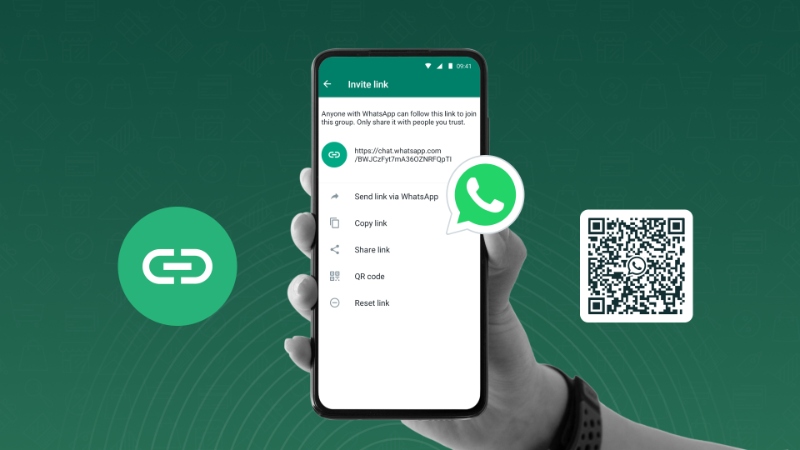In the era of instant messaging, WhatsApp has emerged as a powerhouse, connecting individuals and communities globally through its versatile features. One such feature that gained immense popularity is the ability to create and share group links, fostering seamless communication. However, amidst the convenience, concerns about the safety of sharing WhatsApp group link have arisen. In this article, we will delve into the security aspects of sharing these links and explore ways to ensure a safe and secure digital environment.
Understanding WhatsApp Group Links
WhatsApp group links simplify the process of adding individuals to a group without the need for manual invites. These links, generated within the application, allow users to join a group with a simple click. While this feature has streamlined the process of building communities, it has also given rise to questions about the safety of sharing such links.
The Encryption Factor
WhatsApp is renowned for its end-to-end encryption, which ensures that messages, calls, photos, and videos shared on the platform remain private and secure. However, the encryption doesn’t extend to group metadata and the process of inviting individuals through group links. This lack of encryption raises concerns about the vulnerability of these links to unauthorized access.
Risks Associated with Sharing Group Links
Unauthorized Access: One of the primary risks associated with sharing WhatsApp group is the potential for unauthorized individuals to join the group. This can lead to privacy breaches and compromise the confidentiality of group discussions.
Spam and Malware: Sharing group links publicly or with unknown individuals increases the risk of spam and malware infiltration. Malicious entities may exploit these links to disseminate harmful content or compromise the security of group members.
Privacy Settings and Controls
To address the concerns related to the safety of WhatsApp group links, users can leverage the platform’s privacy settings and controls. By adjusting group settings, administrators can regulate who can join the group and control who can send messages. Additionally, administrators can disable the group link sharing feature to maintain a more secure environment.
Best Practices for Secure Group Link Sharing
Restricting Access: Group administrators should exercise caution when sharing group links and ensure that they are only shared with trusted individuals. Public sharing of group links should be avoided to prevent unauthorized access.
Regularly Updating Links: To enhance security, group administrators can periodically update group links. This practice limits the validity of older links, reducing the chances of unauthorized individuals accessing the group.
Verifying Members: Regularly reviewing group members and removing any unfamiliar or suspicious individuals can contribute to maintaining the integrity and security of the group.
Educating Group Members
Creating awareness among group members about the potential risks associated with sharing group links is essential. Educating users on privacy settings, the importance of not sharing links publicly, and recognizing and reporting suspicious activities can significantly contribute to a safer group environment.
Conclusion
While WhatsApp group links offer a convenient way to connect and communicate, users must be mindful of the potential risks involved. By understanding the encryption limitations, implementing privacy settings, and following best practices, individuals can mitigate the risks associated with sharing group links. Ultimately, fostering a safe and secure digital environment requires a collective effort from group administrators and members alike.
- What Are the Potential Applications of Quantum Computing? - February 9, 2025
- What Are the Best Instagram Growth Hacks From Tech Winks? - February 4, 2025
- Step-by-Step Preparation Plan for FCI AG 3 Exam 2025: Tips to Score High - January 28, 2025
